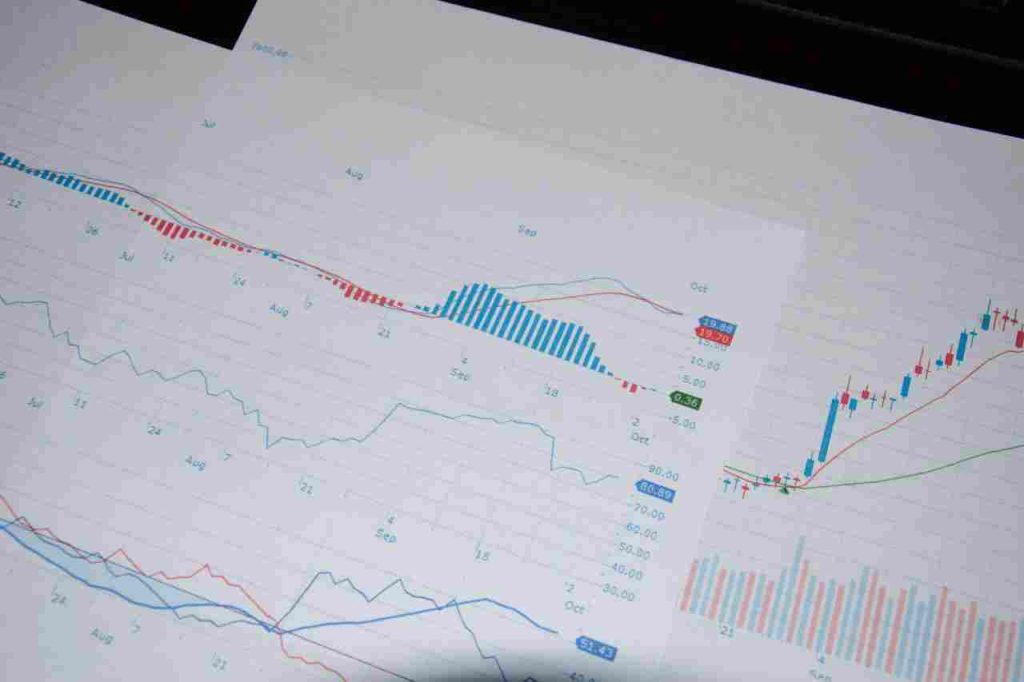Table of Contents
Investing in foreign stocks has become an increasingly popular option for many investors.
With the growth of global markets and the ease of access to information and trading platforms, investing in companies based outside of one’s home country has become easier than ever.
However, with this, increased accessibility comes many potential opportunities and risks that investors should know before diving into foreign stocks.
We will discuss ten potential possibilities and ten concerns to think about while investing in foreign equities in this blog post.
Opportunities
Diversification
A portfolio can benefit from diversity by investing in overseas stocks. Spreading your investments across many asset classes, industries, geographic areas, and national borders lowers the risk of losing money as a result of being overly reliant on one type of investment or market. .

By investing in foreign stocks, investors can potentially reduce their portfolio’s overall risk, as the returns of foreign stocks may not be perfectly correlated with the returns of domestic stocks.
For example, if the domestic market experiences a downturn, an investor with foreign stocks in their portfolio may still see positive returns if those foreign markets perform well.
Additionally, investing in foreign stocks can potentially increase returns by tapping into growth opportunities in other countries and regions.
Exposure to emerging markets
Investing in foreign stocks can provide exposure to emerging markets with high growth potential.
Emerging markets are economies that are transitioning from developing to developed, and they are often characterized by high growth rates, increasing levels of industrialization, and a growing middle class.
Many foreign stocks are based in emerging markets, particularly in regions such as Asia, Latin America, and Africa.
These markets offer opportunities to invest in sectors and industries that may not be available domestically, such as technology, consumer goods, and natural resources.
For example, investing in Chinese or Indian technology companies can provide exposure to the rapidly growing tech sectors in these countries.

Currency fluctuations
Investing in foreign stocks can provide an opportunity to profit from currency fluctuations.
Currency fluctuations occur when the exchange rate between two currencies changes, which can impact the returns of foreign investments.
For example, if an investor purchases a foreign stock when their home currency is stronger than the foreign currency, and the foreign currency later appreciates, they may see higher returns when they convert their foreign holdings back into their home currency.
It’s crucial to remember that currency swings might cause losses if the foreign currency appreciates in value relative to the investor’s native currency..
Additionally, currency fluctuations can be unpredictable and can have a significant impact on the returns of foreign investments.
Investors must to carefully assess the potential effects of currency fluctuations on the profits on their investments as a result. If necessary, they should be ready to take action to manage currency risk, such as adopting hedging techniques or currency diversification.
Access to global brands
Investing in foreign stocks can provide exposure to some of the world’s largest and most well-known brands that may not be available domestically.
Many of the world’s largest companies, such as Apple, Amazon, and Microsoft, are based in the United States. Still, there are also many large and well-known companies based in other countries, particularly in regions such as Europe and Asia.
By investing in foreign stocks, investors can potentially gain exposure to these global brands and benefit from their growth and profitability.
For example, investing in a company like Toyota, which is based in Japan, can provide exposure to the global automotive industry and its growth potential.
Additionally, investing in foreign stocks can provide opportunities to invest in companies that may be industry leaders but may not be as well-known in the investor’s home country.

High yields
Investing in foreign stocks may offer higher yields than domestic stocks due to differences in interest rates or dividends.
Interest rates and dividend yields can vary widely across countries and regions, and investors may be able to take advantage of these differences by investing in foreign stocks that offer higher products.
An investor may be able to earn a larger return by investing in overseas bonds or stocks, for instance, if interest rates there are higher than in the investor’s own nation.
Similarly, if dividend yields are higher for foreign stocks than for domestic stocks, an investor may be able to earn a higher income by investing in foreign reserves.
Unique investment opportunities
Investing in foreign stocks can provide unique investment opportunities that may not be available domestically.
For example, some foreign stocks may offer exposure to industries or sectors that are not well-represented in the investor’s home country, such as natural resources, infrastructure, or emerging technologies.
By investing in these foreign stocks, investors can potentially benefit from the growth and profitability of these industries, which may not be available domestically.
For example, investing in a foreign company involved in natural resources, such as mining or oil and gas production, can provide exposure to a sector that may be limited or not well-represented in the investor’s home country.
Similarly, investing in a foreign company involved in infrastructure, such as transportation or utilities, can provide exposure to a sector that may be subject to unique economic or regulatory conditions in the foreign country.
Economic and political diversification
Investing in foreign stocks can also provide economic and political diversification for an investor’s portfolio.
Economic and political conditions can vary widely across countries and regions, and by investing in foreign stocks, investors can potentially benefit from a more diversified portfolio that is less exposed to the risks of a single country or region.
For example, if an investor’s home country is heavily dependent on a single industry or sector, such as oil and gas production, investing in foreign stocks can expose other industries and sectors that may be less dependent on that industry.
Similarly, if an investor’s home country is experiencing political instability or economic recession, investing in foreign stocks can provide exposure to countries or regions that may be experiencing more favorable economic or political conditions.

Potential for faster growth
Investing in foreign stocks can provide the potential for faster growth compared to investing solely in domestic stocks.
Foreign countries and regions may have different growth prospects, economic conditions, and industry trends than the investor’s home country.
For instance, certain emerging market nations may see quicker economic growth than developed market nations due to elements including population growth, urbanization, and rising consumer demand. Investments in the equities of businesses situated in these nations may give exposure to this growth and produce higher profits.
In addition, some industries may be more developed or have more significant growth potential in foreign countries than in the investor’s home country.
For example, renewable energy may be a rapidly growing industry in certain foreign countries due to favorable policies and natural resources. At the same time, it may be less developed in the investor’s home country.
Risks
Currency risk
One of the critical risks associated with investing in foreign stocks is currency risk. This is because foreign stocks are typically denominated in a foreign currency, and changes in exchange rates between the investor’s home currency and the foreign currency can impact the value of the investment.
For example, if an investor purchases a foreign stock denominated in a foreign currency that later depreciates relative to the investor’s home currency, the value of the investment in the investor’s home currency will decrease.
On the other hand, if the foreign currency appreciates relative to the investor’s home currency, the value of the investment in the investor’s home currency will increase.
Currency risk can be mitigated through the use of hedging strategies, such as currency forwards or options. However, these strategies can add additional costs and complexity to the investment and may not always be practical.
Before making an investment decision, investors must carefully assess any potential currency risks related to purchasing foreign stocks, as well as take into account their risk appetite and investment objectives.
Investors should also consider the impact of foreign taxes and fees on their investment returns, as well as the potential need for foreign currency transactions or hedging strategies.

Political risk
Investing in foreign stocks also involves political risk, which refers to the potential impact of political events or changes in government policies on the value of the investment.
Political risks can vary widely depending on the country or region where the foreign stocks are based. Examples of political risks that investors may face include:
Nationalization or expropriation of assets by the government
Changes in tax policies or regulations that negatively impact the company’s operations or profitability
Civil unrest or political instability that disrupts the company’s operations or supply chain
Trade disputes or economic sanctions that impact the company’s ability to do business
Corruption or lack of transparency in government or corporate practices.
Political risks can be challenging to predict and may be amplified in emerging market countries or those with less stable political systems.
As a result, investors may want to carefully evaluate the political risk associated with investing in foreign stocks and consider their risk tolerance and investment goals before making investment decisions.
To mitigate political risk, investors may want to consider diversifying their investments across different countries or regions or investing in multinational companies with operations in multiple countries.
They may also want to monitor political developments and seek expert advice or analysis to understand the potential impact on their investments better.
Liquidity risk
This refers to the risk that an investor may be unable to sell their shares in the foreign stock at a desired price or at all due to a lack of buyers or a low trading volume.
Liquidity risk can be particularly relevant for investors who hold minor positions in foreign stocks, as these may be less actively traded than larger, more established companies.
Additionally, trading hours in foreign markets may be different from those in the investor’s country of residence, making it more challenging to buy or sell shares during regular trading hours.
To manage liquidity risk, investors should carefully evaluate the liquidity of any foreign stocks they are considering purchasing and consider the potential impact on their ability to buy or sell shares.
They may also want to consider diversifying their investments across different countries or regions to reduce their exposure to any one market.
It’s also essential for investors to be aware of any trading restrictions or regulations in foreign markets that may impact their ability to buy or sell shares.
Investors may want to work with a broker or financial advisor with expertise in foreign markets to help navigate these challenges.

Cultural and language barriers
Investing in foreign stocks can also involve cultural and language barriers, which can create challenges for investors unfamiliar with the customs, practices, or language of the foreign market.
Cultural differences may impact how companies operate, including their management style, corporate governance, and business practices.
Investors unfamiliar with these differences may have difficulty evaluating the quality of the company’s management or understanding the risks associated with the investment.
Language barriers may also make it difficult for investors to access information about the company, including financial statements, corporate news, or market research.
To grasp this information, investors might need to turn to translation services or regional authorities, which might raise the cost and complexity of the transaction.
To manage cultural and language barriers, investors may want to consider working with a broker or financial advisor with expertise in the foreign market. They can provide insights into the cultural and business practices of the companies they are considering investing in.
Investors may also wish to think about investing in global corporations since these firms may be more used to the linguistic and cultural diversity of the markets in which they conduct business.
Disclosure risk
Disclosure risk refers to the chance that a company may not provide accurate or complete information about its financial performance, operations, or troubles, making it difficult for investors to make informed investment decisions.
In some cases, companies in emerging markets may not be subject to the exact disclosure requirements as companies in developed markets, making it more difficult for investors to evaluate the quality of the company’s financial statements or assess the potential risks associated with the investment.
To manage disclosure risk, investors should carefully evaluate the quality of the company’s financial statements and disclosures and consider the potential impact of any gaps or inconsistencies in the information provided.
Investors could also wish to think about putting money into well-known, established companies or international corporations that are required to disclose information more thoroughly and have a history of giving investors accurate and comprehensive information.
Investors may also wish to think about dealing with a broker or financial advisor that is knowledgeable about the foreign market and can offer extra perspective on the standard and correctness of the company’s disclosures.
Conclusion
Investing in foreign stocks can provide a range of opportunities for investors, from diversification to exposure to emerging markets and access to global brands.
The problems that could arise, from monetary and political threats to cultural and linguistic hurdles, must, however, be understood. Investors should carefully consider these opportunities and risks before investing in foreign stocks.










